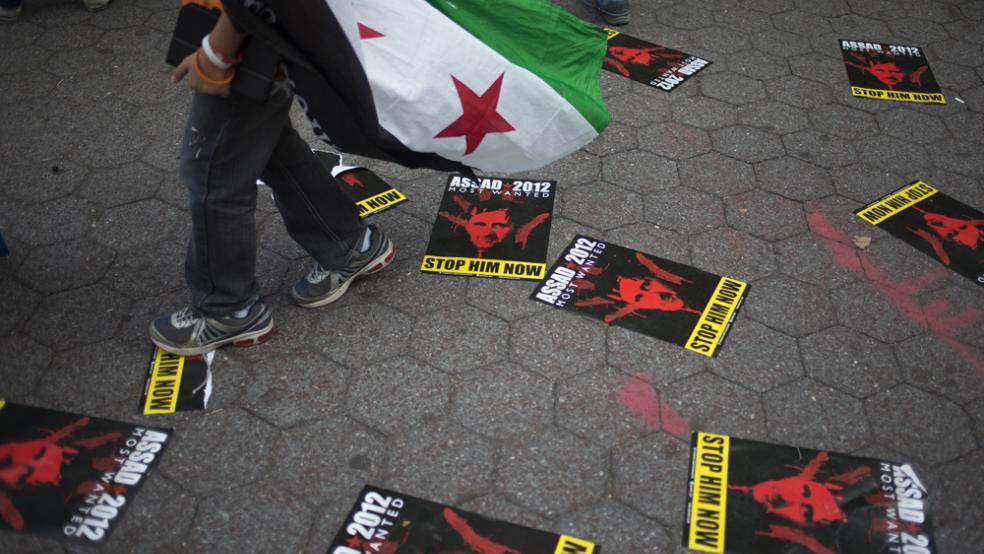The chemical weapons deal between the United States and Syrian President Bashar al-Assad has yet to be finalized. But Assad is already trying to hide chemical weapons from international inspectors, according to reports.
Syrian rebel leader General Selim Idris says that Assad has begun moving weapons to neighbors friendly to Assad’s cause in advance of the United Nations inspections.
RELATED: JOHN KERRY’S SYRIA PROPOSAL: WAS IT GOOF OR GUILE?
“We have told our friends that the regime has begun moving a part of its chemical weapons arsenal to Lebanon and Iraq. We told them do not be fooled,” Idris said, in blasting the deal. “A crime against humanity has been committed and there is not any mention of accountability.”
It’s obviously in the interest of the rebels to paint the Assad regime as non-compliant to the deal that staved off possible U.S. military action. But recent reports out of Lebanon offer evidence to support it. According to the Lebanese daily Al-Mustaqbal, Syria has moved some 20 trucks loaded with the tools to manufacture chemical weapons into nearby Iraq. The paper claims the trucks were not inspected at the border.
A LOT OF LOOSE WEAPONS
The movement of weapons across the Middle East is nothing new. Recent instability in the Middle East has led to wide distribution of loose weapons. In fact, these weapons are in large part responsible for the uprising in Syria.
When Libyan leader Muammar al-Gaddafi was deposed and killed, he left tens of thousands of weapons caches around the country. The U.N. Security Council is now hearing reports that these weapons are being smuggled into Syria.
The problem has become so acute that Prime Minister Ali Zeidan asked British Prime Minister David Cameron for assistance in stopping the flow of weapons out of Libya.
“It is now an international matter and we do need assistance in order to perform this task because we are now facing a battle with international terrorism,” Zeidan said in London Monday.
The prospect of an underground chemical weapons market in the Middle East is alarming, to say the least. The region is filled with terrorist groups that would relish using a weapon of mass destruction on western targets.
The threat of loose chemical weapons is so real that the United States sent a 150-person team to Jordan nearly a year ago to deal with the possibility. With reports of chemical weapons moving freely around the region, it’s a possibility that could quickly become a reality.






